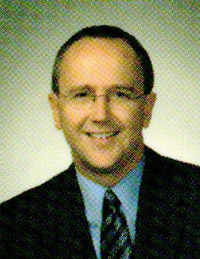One year passed, and the Holy Ghost called Barnabas and Saul to foreign missions. Having submitted themselves to the spiritual leadership of Saul, having lived the law of Christ concerning forgiveness, the disciples in Antioch could now be called Christians (Christ-like). Could it be that before God can use a church to send forth missionaries through the direction of the Holy Ghost, the people must learn to forgive as Antioch did?

By Brent Watts
To View the Entire Article, Click Here
To Download the Entire Article Directly to Your Computer, Click Here
To View the Outline, Click Here
To View the PowerPoint, Click Here
Dear Timothy:
I have been asked to pass on in an open letter to young ministers what I felt were the most important principles for a young minister to live by. I guess the following would summarize what could easily become a lengthy dissertation.
Young man, learn how to pray. Biblical praying cares little for neither voluminous words nor long prayers of endurance, but rather a constant attitude of prayer that involves a meaningful communication with God. Jesus taught men how to pray in less than sixty seconds (Matthew 6:9), but took three years showing them how. We must not forget his rudimentary words, “When you pray, say.”
Every young minister needs to learn to communicate audibly with God apart from constant repetition. Personality may determine to some extent our body language and the volume we use in prayer, but must not force us into silent prayer or vain repetition. As important as praise, petition, praise (the prayer sandwich) is to effective praying, little value will be realized if one does not learn to say from his heart.
Jesus Christ expects and deserves more communication from us than the constant repetition of His name or such phrases as “God have mercy,” “Jesus have mercy,” “help us.” Times of great contrition may merit this kind of repetition but must never be the extent of our conversations with Deity. Prayer is a learned skill, a valuable, indispensable tool sharpened by practice. Lord, teach us to pray.
Personal integrity constitutes the only foundation on which to build a lasting relationship with God or man; God’s first miraculous act of judgment in the early church was experienced by two well-thought-of saints, Ananias and Sapphira, who chose to deceive in a money matter (Acts 5:1). The apostle Peter through a word of knowledge uncovered their deceit. For some strange reason, this first notable problem of the early church has returned to plague even the ministry in the later days of the church. Partial statements meant to deceive constitute dishonesty. Exaggeration of numbers designed to impress strikes at the very heart of honesty and integrity. Statements such as “I’ve never seen such a move of God” and “I’ve never experienced anything like this before” need to be used very carefully. Strong preaching against any lust or sin while practicing the same constitutes dishonesty. God may bless and honor His Word but will never accept the worker of iniquity regardless of the great results claimed through the supposed operation of the gifts. (See Matthew 7:22-23.) Timothy, in all things, even when inconvenient, even when pressured, speak the truth and lie not to God nor men.
Handle both your personal finances and the finances of the church in a manner above reproach.
To View the Entire Article, Click Here
To Download the Entire Article Directly to Your Computer, Click Here
To View the Outline, Click Here



